Threshold the results from a differential co-expression analysis and create a differential network.
dcNetwork(dcscores, dcpvals = NULL, thresh = NULL, ...)Arguments
- dcscores
a matrix, the result of the
dcScorefunction. The results should be passed as produced by the function and not modified in intermediate steps- dcpvals
a matrix or NULL, raw or adjusted p-values resulting from
dcTestordcAdjustrespectively. Should be left NULL only if method is EBcoexpress or DiffCoEx- thresh
a numeric, threshold to apply. If
NULL, defaults to 0.1 for methods that generate a p-value, 0.9 for posterior probabilities from EBcoexpress and 0.1 on the absolute score from DiffCoEx- ...
see details
Value
an igraph object, representing the differential network. Scores are added as edge attributes with the name 'score'
Details
No extra arguments required for this function. The ellipsis are used to allow flexibility in pipelines.
Examples
#create data
set.seed(360)
x <- matrix(rnorm(120), 4, 30)
cond <- rep(1:2, 15)
#perform analysis - z-score
zscores <- dcScore(x, cond)
pvals <- dcTest(zscores, emat = x, condition = cond)
pvals <- dcAdjust(pvals, p.adjust, method = 'fdr')
ig <- dcNetwork(zscores, pvals, 0.1)
#perform analysis - DiffCoEx
dcscores <- dcScore(x, cond, dc.method = 'diffcoex')
ig <- dcNetwork(dcscores, thresh = 0.001)
#plot the resulting differential co-expression network
igraph::plot.igraph(ig)
